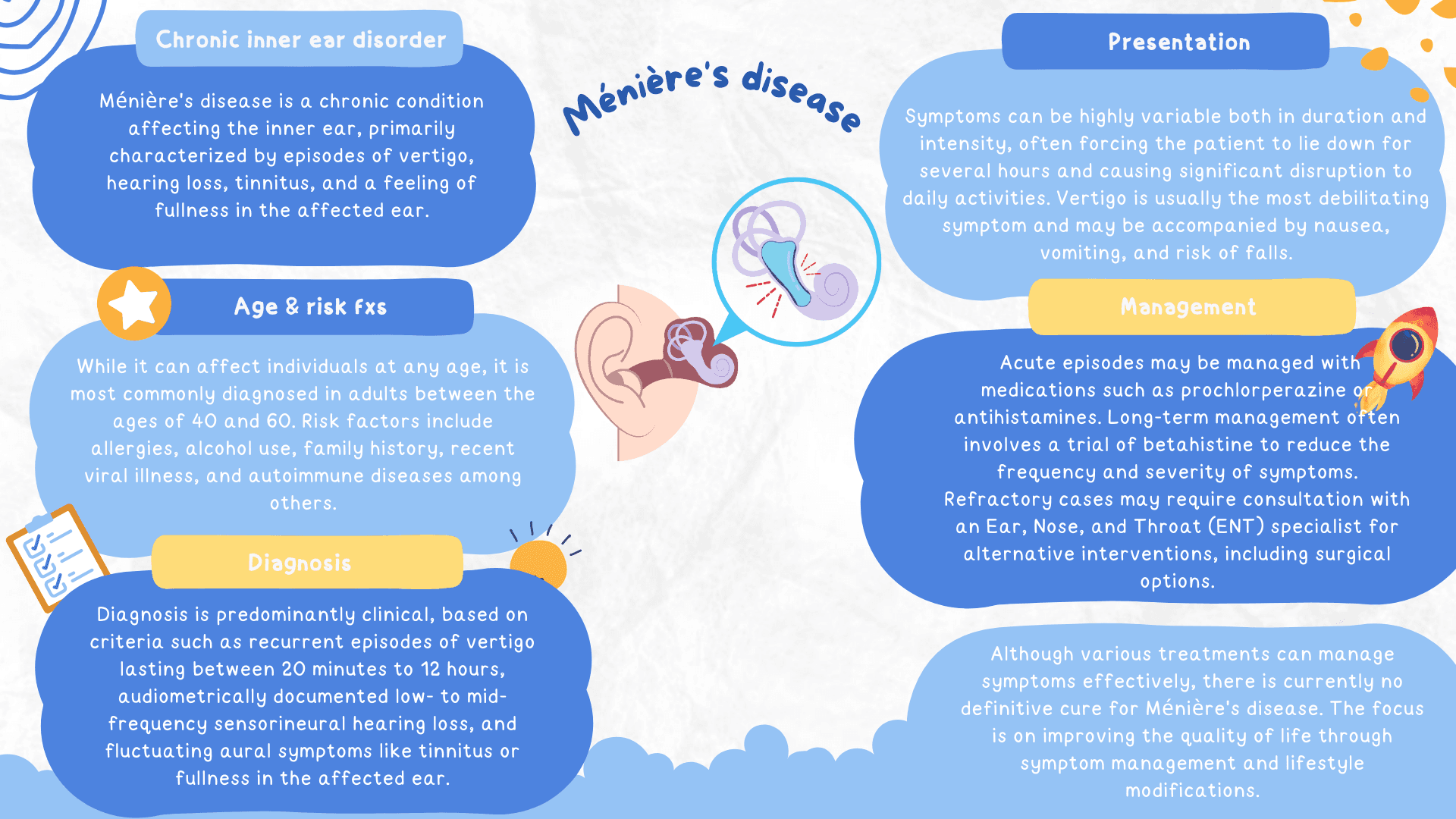Download A4Medicine Mobile App
Empower Your RCGP AKT Journey: Master the MCQs with Us!

Ménière's disease is a chronic, often debilitating condition of the inner ear characterized by episodic vertigo, hearing loss, tinnitus, and a sensation of fullness in the affected ear. Named after the French physician Prosper Ménière who first described the syndrome in the 1860s, the disease predominantly affects adults between the ages of 40 and 60, although it can occur at any age. The precise aetiology remains largely unknown, but risk factors include allergies, alcohol use, family history, and certain medical conditions such as respiratory infections or autoimmune diseases.
Diagnosis is primarily clinical and involves fulfilling specific criteria, including recurrent episodes of vertigo and documented hearing loss. While there is no cure, management aims to alleviate symptoms and improve quality of life. Treatment options range from pharmacological interventions, including antihistamines and antiemetics for acute episodes, to more invasive measures like surgery for refractory cases. Long-term management often involves lifestyle modifications and ongoing medical treatment.
| Aspect | Details | References |
|---|---|---|
| Definition | Ménière's disease is an inner ear disorder causing episodes of vertigo, hearing loss, tinnitus, and aural fullness. | [1] |
| Historical Background | Named after French physician Prosper Ménière who first recognized vertigo as an inner ear disorder in 1861. | |
| Pathophysiology | The cause is unknown but... |
Try our Free Plan to get the full article.